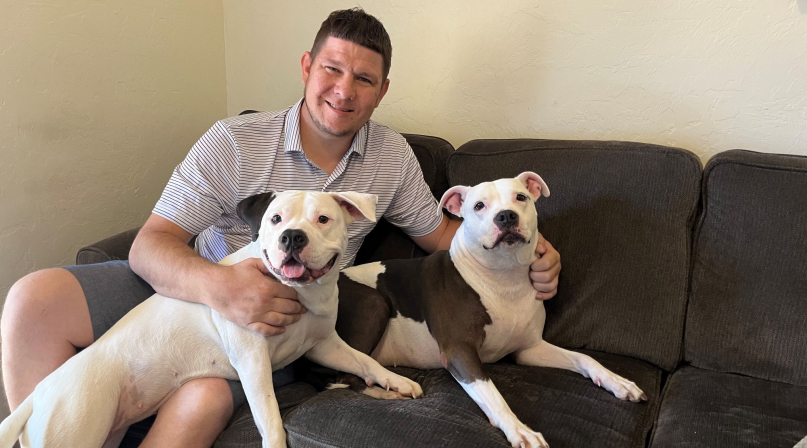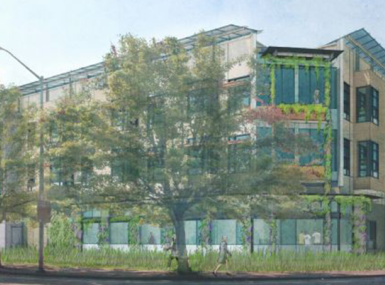Arizona county works to end homelessness, reduce recidivism for formerly incarcerated

Key Takeaways
Pima County, Ariz. is working to end chronic homelessness and reduce recidivism through the Housing First model, which provides transitional and permanent supportive housing, as well as supportive services for mental health issues and substance use disorder, to the county’s formerly incarcerated population.
Homelessness in Pima County has skyrocketed in recent years. Between 2018 and 2023, the county saw a 60% increase. Since the pilot program launched in 2019, Pima County has housed 249 individuals through Housing First.
To be eligible for the program, participants must have two bookings in the Pima County Jail, as well as a mental health or substance use disorder, according to Cynthia Chapman, Pima County Justice Services’ program and grant manager. Old Pueblo Community Services, a social services organization, refers Housing First participants to housing, counseling and supportive services and the city of Tucson provides vouchers for permanent supportive housing.
“The county really saw that there was a gap,” Chapman said. Previously “there really was no good referral pathway for justice-involved individuals to be able to gain transitional or permanent supportive housing.”
According to a RAND research report, which was conducted from December 2020-2021, the funding the county dedicated to Housing First, including bridge housing and supportive housing services, was offset by reductions in costs to the criminal justice and health systems.
Over the 12-month period of the study, among those enrolled in Housing First, justice-related service utilization declined by more than 50%, and health care costs declined by 45%, compared to the 12 months prior to the study — totaling a cost savings of approximately $1.2 million for Pima County (for criminal justice–related costs) and the state of Arizona (for health care costs billed to Medicaid).
Old Pueblo Community Services prioritizes the housing list based on need, so if someone is in an emergency situation or a particularly unsafe predicament, they can be placed as soon as possible, Chapman said.
“For example, we’ve had a client who was pregnant, and that put them up higher on the list to be able to be off of the streets,” she added. According to the RAND research report, the 12-month housing retention rate for Housing First participants is 82%.
Each individual enrolled in the program receives a case manager, who helps them with logistics such as employment services, obtaining Social Security cards and access to health care for any matters related to their substance use disorder and/or mental health. If the participant has court-ordered treatment, fulfilling that is a requirement for staying enrolled in the program and remaining housed, according to Chapman.
“The case manager keeps them throughout that process, so that way, they’re able to build that rapport,” Chapman said. “And then they’ll go with them if they have a court hearing, so they’re also filling that advocacy role with the individuals.”
Case managers also help connect participants to other grant programs for justice-involved individuals that assist with needs, such as transportation, that Housing First doesn’t address, according to Chapman. “[We didn’t want to say] ‘Oh, you need to get to court so you don’t get a ‘failure to appear’ at your court hearing, and we’re going to hold you accountable to this, but we’re not going to provide you the resources to be able to do that,’” Chapman said. “… So, it’s having their case managers say, ‘Hey, there’s this other program that the county offers,’ and making sure they have access.”
Less than four years ago, Jennifer Martin was homeless and using heroin and meth. She was attacked and had her head smashed in with a brick, leaving her in a week-long coma. After returning to the streets, she said she was “rescued by being arrested” after passing out behind a store from drug use. After Martin was released from jail, she got connected to Housing First, where she received intensive case management and found permanent housing.
“OPCS got me off the street, helped me stay off drugs and helped me with my brain injury,” Martin said. “They showed me love and care and that’s why I call them my angels.”
Housing First offers wraparound services to justice-involved individuals, as well as their families. Old Pueblo Community Services helps families with reunification, as well as referrals to legal representation (specifically related to familial issues) and offers group circles for family members of people who have been incarcerated, as a form of peer support.
The HUD housing counseling center is also helping Pima County work in tandem with the city and nonprofit agencies to create housing solutions and make dollars stretch, Chapman said.
The housing counseling center “really looks at braiding all of the efforts of our community together … and making it one joint effort,” Chapman said. “Versus ‘That’s your sandbox,’ ‘That’s your sandbox,’ ‘Don’t come over here, because this is ours.’”
Related News

Sonoma County creates solutions to homeless crisis
Wildfire devastation and the COVID-19 pandemic contributed to a homelessness crisis in Sonoma County, Calif., prompting the county to create more comprehensive housing offerings to better meet the needs of its most vulnerable populations.

U.S. Senate Committee approves legislation to reauthorize programs for older adults
On July 31, the U.S. Senate Committee on Health, Employment, Labor and Pensions (HELP) approved the bipartisan Older Americans Act Reauthorization Act of 2024 on a 20-1 vote.

Arizona county leads nation in identifying indigent remains
Pima County seeks to offer closure to next of kin following the death of an indigent person.
Resource
Comprehensive Services for People With Co-Occurring Disorders: A NACo Opioid Solutions Strategy Brief

